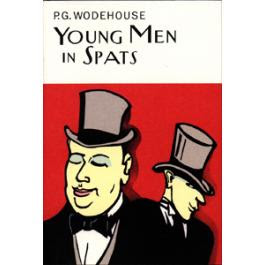
I'm actually not sure where I first heard of
The Greengage Summer, by Rumer Godden. It was probably
A Work in Progress, but it's possible someone else read it as well and knocked it onto my to-read list. When I went through said list looking for books I wanted to finally read, this was one of the ones I picked, so something about it must have appealed to me from the start.
It's a lovely book. It reminds me of Joanne Harris novels--small town France, a certain dreamy quality to the storytelling. For some reason I always have difficulties with Joanne Harris novels, though, even when I like them a lot. I got through
Chocolat all right, but I've started
Five Quarters of the Orange two or three times and never finished it. I had no such difficulties with
The Greengage Summer. It was hard to put down. I'd start reading it, and keep reading and never find a good place to stop, though once I put it down it didn't poke at me to go back. Funny how differently books behave in this.
The Greengage Summer tells the story of five English children who spend a summer in a hotel in the wine countries of France. Their mother is absent, in a French hospital, and they are haphazardly looked after by the people in the hotel. The oldest girl is Joss, sixteen and just beginning to grow up. The next oldest girl is Cecil, thirteen and our narrator. Then we have Hester, 10, and Willmouse, who spends most of his time sitting in the orchard designing clothes. The youngest is Vicky, who is four years old and hangs out in the kitchen. The other inhabitants of the hotel are Mademoiselle Zizi, the proprieter, Madame Corbet, the manager, Monsieur Joubert, a painter, and Eliot, and Englishman who is temporary guardian to the children and many other things besides. There are also various hotel employees who flit in and out of the story, some more important than the others.
Cecil tells the story from her memory, and true to memory, the story jumps around and gives hints of the future. Though you never particularly suspect her of embellishing, you know that to Cecil some parts stand out more than the others, some are remembered in a certain light. There's something about summer which leaves behind memories as impressions, certain signs that bring it to mind. Though the story has a very strong plot, it is remembered and told in increments, so that sometimes the individual actions or things seem bigger than the whole. I don't mean to imply that the book doesn't hang together well, or have a strong sense of continuity. It absolutely does, which is part of why it was so hard to put down.
This is a story about growing up, about the adult world intruding into the children's world even more than they intrude into the adult world. What the children know is crucial to the mysteries the adults are trying to solve. The children see people differently than adults see them, sometimes because they see more clearly, sometimes because they are ignorant of adult concerns, and sometimes because the adults really are different when they are with children. The book seems to say that the point of view of children is just as valid as that of adults. If a person has been nice to a child, the child can think of that person as nice, and it doesn't matter what that person does to adults, and that's okay. It's a nice message.
This is a wonderful book, perfect for long bright summer afternoons. I may not have explained it well, but that's because it holds together so perfectly and imprints itself on your memory in such an indefinable way. I loved it.

















 I love modified street signs. There used to be one near my house where somebody had turned "Residential Street" into "Presidential Street", and they used a sticker, too, so it actually matched the sign and looked like it was supposed to be that way.
I love modified street signs. There used to be one near my house where somebody had turned "Residential Street" into "Presidential Street", and they used a sticker, too, so it actually matched the sign and looked like it was supposed to be that way.










 Yesterday we made my favourite summer food, blackberry pie, with the blackberries we picked at my grandparents' house on Vashon Island. Blackberry is the best kind of pie. I can't imagine living somewhere that doesn't have blackberries.
Yesterday we made my favourite summer food, blackberry pie, with the blackberries we picked at my grandparents' house on Vashon Island. Blackberry is the best kind of pie. I can't imagine living somewhere that doesn't have blackberries.









